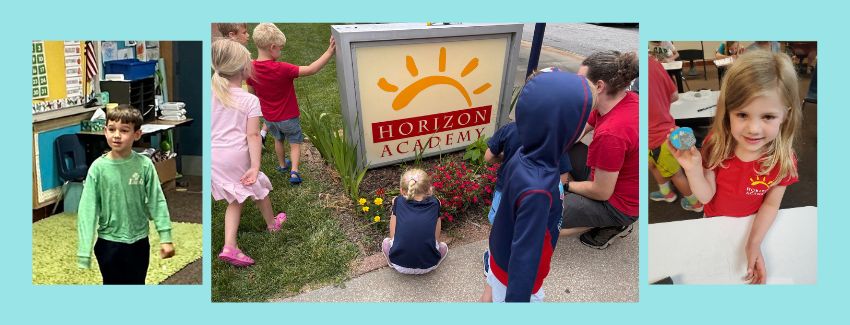Horizon Academy Announces First-Ever Enrollment of Kindergarten-Age Students (For Children At Risk Of Dyslexia)
Aug 20, 2024

Horizon Academy is currently enrolling kindergarten students who are at risk for dyslexia for the 2024-2025 school year. Ours is the first early intervention program of this kind in the region.
Horizon Academy is the only school accredited by the Orton-Gillingham Academy in the western half of the United States. The Orton-Gillingham Approach is the gold standard for educating individuals with dyslexia.
Established in 1999, Horizon Academy has a 25-year history of working with students with learning disabilities and has been further focused exclusively on students with a primary diagnosis of dyslexia for the last decade.
“This program is the next step in our partnership with parents. For parents who don't want their children to lose years of their education to a "wait and see" approach, this program will provide students with the best phonics and phonemic awareness instruction as the
foundation for their future.” -Vicki Asher, Head of School at Horizon Academy
Targeting dyslexia risk in kindergarten-age children will provide proactive intervention before students experience a sense of failure in learning or internalize beliefs about their ability to learn. Early intervention is not only a powerful tool for improved student learning
but will also minimize social and emotional issues that can cause significant setbacks for students with language-based learning disabilities.
Research has found that intensive interventions are most effective in kindergarten and first grade. (Wanzek & Vaughn, 2007) Despite the benefits, practical implementation of screening and intervention during these early years is not common practice, and we
have not seen it initiated in the greater Kansas City region.
Instead, students are often subject to a “wait-to-fail” model that further delays the intervention needed. Evaluators may also be cautious about giving children diagnoses due to the impact of stigma and poor access to good instruction. As a result, students often experience significant struggles until teachers or parents notice signs of dyslexia. These struggles are often not seen until students
complete grade 2 or begin grade 3, and for some, it is much later.
Part of the reason for the delay is that students cannot be officially diagnosed with dyslexia until between the second and fourth grades.
Horizon Academy has developed its own assessment devices: first, a preliminary 5-question survey to the parent; and second, an in-person session between the child and a speech and language pathologist who is also Orton-Gillingham Trained and Certified.
Sharable Link to the Survey: https://forms.gle/RecNxmMGMnKAZmyo8
Another reason for the delay could be a “wait and see” approach adopted by parents to delay evaluating a child with reading difficulties because they believe the problems are just temporary, and that they will be outgrown. This is simply not true.
“Reading problems are not outgrown, they are persistent. As the participants in the Connecticut Longitudinal Study have demonstrated, at least three out of four children who read poorly in third grade continue to have reading problems in high school and beyond. What may seem to be tolerable and overlooked in a third grader certainly won’t be in a high schooler or young adult. Without identification and proven interventions, virtually all children who have reading difficulties early on will still struggle with reading when they are adults.” -Sally
Shaywitz, Overcoming Dyslexia
Background: Horizon Academy is a private school in Roeland Park, Kansas empowering students with dyslexia and other language-based learning disabilities to become effective learners and confident self-advocates.
Horizon Academy is a transition school and students typically come for three or four years to learn the skills they need to be successful. After this time, they are able to transition back to more traditional learning environments.
